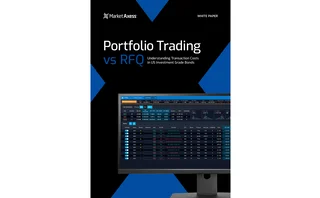Sentiment Analysis Still Has a Long Way to Go on Wall Street

Sentiment analysis─it's been much bandied about, but without much hard evidence that it's worth the headache.
This past week we saw a firm try to commodify the technology. London-based DCM Capital has had a stormy go of trying to use sentiment analysis as a money generator. In the beginning DCM was a hedge fund named Derwent Capital Markets that based its investment decisions on sentiment analysis from the social networking site Twitter. That did not work so well as it struggled to raise capital during difficult market conditions.
After the fund closed, it rebranded itself as DCM Capital and entered the vendor space with its sentiment-based trading platform, which was aimed at retail investors. As my colleague James Rundle wrote back in May, "The technology powering it has been developed entirely in-house using the financial resources from Derwent's ill-fated venture, building on a core of the sentiment analysis tools initially built for the hedge fund."
I found it interesting back then that they were targeting the retail space and not hedge funds, considering their ties to the alternative investments market. Was it that there was absolutely no interest coming from hedge funds? And is that a sign that this is not something they are ready to jump on just yet?
Apparently, though, the retail space wasn't ready for the technology either, and a couple weeks ago DCM Capital CEO Paul Hawtin put the platform up for sale in an online auction. The asking price was £5 million ($7.9 million) with a breakeven point of £350,000 ($550,000).
After the auction closed two weeks later, the winning bid was £120,000 ($186,000)─98 percent off the asking price and 65 percent off the breakeven price.
This poor showing might be an indictment of DCM's technology (or decision to go the auction route, rather than hiring a professional firm to sell it) and not necessarily a shunning of sentiment analysis altogether. But over the last year I've spoken with numerous C-level executives inside hedge funds and asset managers─as have my colleagues─and attended numerous conferences and the common refrain is that they are still "investigating" how best to incorporate sentiment analysis, but they aren't ready to jump on it just yet.
But there are positive signs, too. In the last month both Dow Jones and NYSE Technologies have partnered with sentiment analysis vendors in order to get ahead of the curve.
For whatever it's worth, I really have my doubts that sentiment analysis will ever be the driving force of a successful firm making its investment decisions. But there is room for it to be used as a guiding data point.
The way I see it, an app or dashboard that gives historical context into a security's overall social networking sentiment could prove a valuable tool for a trader who is 50/50 on a pick. My other guess is that this will first be developed on the sell side and will eventually find its way over to the buy side.
Am I wrong? Am I right? Should I stick to talking about beer and sports? Shoot me an email at anthony.malakian@incisivemedia.com or give me a call at 646-490-3973 and let me know your opinions.
Only users who have a paid subscription or are part of a corporate subscription are able to print or copy content.
To access these options, along with all other subscription benefits, please contact info@waterstechnology.com or view our subscription options here: http://subscriptions.waterstechnology.com/subscribe
You are currently unable to print this content. Please contact info@waterstechnology.com to find out more.
You are currently unable to copy this content. Please contact info@waterstechnology.com to find out more.
Copyright Infopro Digital Limited. All rights reserved.
As outlined in our terms and conditions, https://www.infopro-digital.com/terms-and-conditions/subscriptions/ (point 2.4), printing is limited to a single copy.
If you would like to purchase additional rights please email info@waterstechnology.com
Copyright Infopro Digital Limited. All rights reserved.
You may share this content using our article tools. As outlined in our terms and conditions, https://www.infopro-digital.com/terms-and-conditions/subscriptions/ (clause 2.4), an Authorised User may only make one copy of the materials for their own personal use. You must also comply with the restrictions in clause 2.5.
If you would like to purchase additional rights please email info@waterstechnology.com
More on Trading Tech
Expanded oversight for tech or a rollback? 2025 set to be big for regulators
From GenAI oversight to DORA and the CAT to off-channel communication, the last 12 months set the stage for larger regulatory conversations in 2025.
DORA flood pitches banks against vendors
Firms ask vendors for late addendums sometimes unrelated to resiliency, requiring renegotiation
IPC’s C-suite shuffle signals bigger changes for trader voice tech
Waters Wrap: After a series of personnel changes at the legacy provider, WatersTechnology examines what these moves might mean for the future of turrets and trader voice.
WatersTechnology latest edition
Check out our latest edition, plus more than 12 years of our best content.
From no chance to no brainer: Inside outsourced trading’s buy-side charm offensive
Previously regarded with hesitancy and suspicion by the buy side, four asset managers explain their reasons for embracing outsourced trading.
Band-aids vs build-outs: Best practices for exchange software migrations
Heetesh Rawal writes that legacy exchange systems are under pressure to scale to support new asset classes and greater volumes, leaving exchange operators with a stark choice: patch up outdated systems and hope for the best or embark on risky but rewarding replacement projects.
Portfolio trading vs RFQ: Understanding transaction costs in US investment-grade bonds
The MarketAxess research team explores how such factors as order size, liquidity profiles and associated costs determine whether a portfolio trade or an RFQ list trade is the optimal choice.
IEX, MEMX spar over new exchange’s now-approved infrastructure model
As more exchanges look to operate around-the-clock venues, the disagreement has put the practices of market tech infrastructure providers under a microscope.








